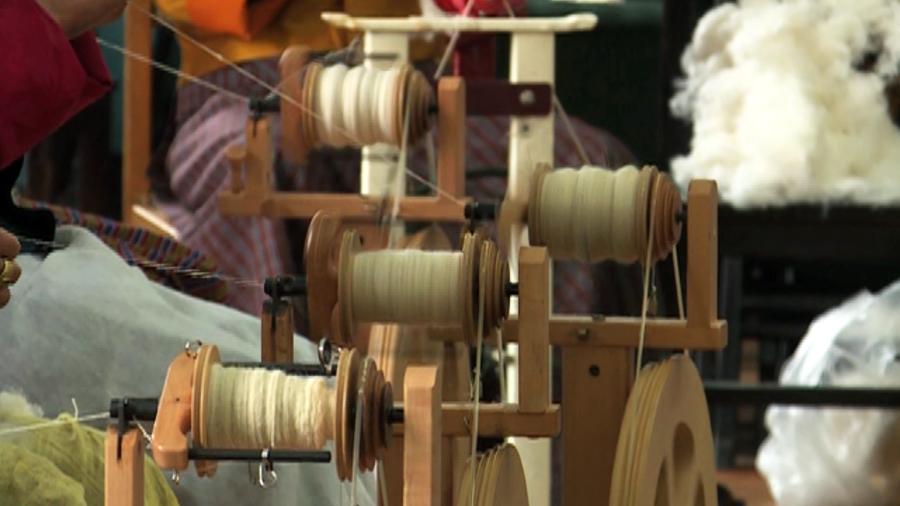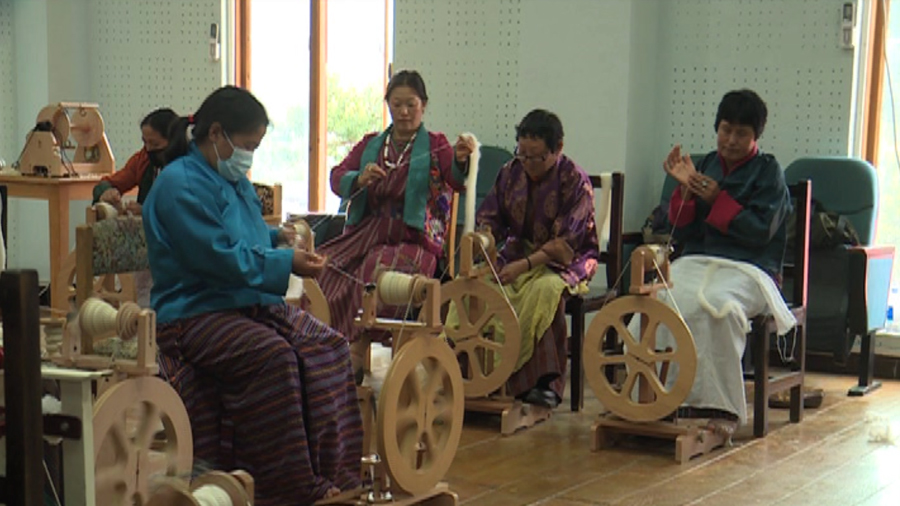
Spinning yarn is expected to become easier, especially for those communities that use local products like wool, nettle and cotton. The Ministry of Industry, Commerce and Employment organised a two-week training for the weavers in Thimphu and provided them hand operated spindle machines. Through this programme, the communities are expected to improve the quality of yarn and earn better income.
 17 weavers from Dorjibi in Bumthang, Merak, Sakteng, and Drubkhang Goenpa in Trashigang, and Migkuri in Pema Gatshel took part in the programme. These villages are all known for producing wool, nettle and cotton.
17 weavers from Dorjibi in Bumthang, Merak, Sakteng, and Drubkhang Goenpa in Trashigang, and Migkuri in Pema Gatshel took part in the programme. These villages are all known for producing wool, nettle and cotton.
During the training, the weavers were taught how to use the hand-operated spindle machine and how to repair it.
After attending the programme, they will pass on the skills they have learned to others in their respective communities.
‘‘It is taking a lot of time when we use the old tools. With this new machine, we can easily spin the yarn and improve the quality. In the east, we call it Sondaling. When we use it, it takes a lot of time,” said Tashi Choden, a weaver.
“In Sakteng, we produce wool. And such training is helpful to us. We have not used this machine in the past. We have also learned how to make Bumthang mathra,’’ said Sonam Zangmo, another weaver.
‘‘These are the rural weavers. So we are just helping them in building their capacity so that they can spin well. In Pema Gatshel, they can grow more cotton and then their products will be multiplied and their quality will be improved. So, at the end of the day, their income will be improved. So mainly, APIC is supporting them in enhancing their skills so that they can make more income,’’ said Kezang Chhophel from the Indigenous crafts.
He added that they are planning to import improved tools in the future to further enhance the quality of the yarn and simplify the task for the weavers.
Karma Wangdi
Edited by Tshering Zam








